Meet entrepreneurs of color building Tulsa's former Black Wall Street into hot, new tech hub
Spirit of Black entrepreneurship "strong" a century after the Tulsa massacre.
A community of Black entrepreneurs are shaking up the tech and innovation ecosystem and forming a new hub for digital creators, developers and investors based in Tulsa, Oklahoma.
Founders building companies from the city say it boasts a pipeline of fresh and diverse talent, an enterprising yet collegial support system, and offers a cost of living that will make any Bay Area or New York-based startup envious.
For some, there is also the importance of building back the storied "Black Wall Street" that was violently taken from people that looked like them, in Tulsa, just a century ago. Some 300 people were killed and thousands wounded when a mob of white vigilantes, harboring resentment towards their thriving Black neighbors, eviscerated the well-to-do Greenwood district and burned down 35 acres of commercial and residential property.
The legacy of the Tulsa Race Massacre, erased from many history books for generations, still looms large over Black business leaders choosing to rebuild along the streets that haunt survivors every day over what "could have been."
"The Tulsa Race Massacre isn’t a footnote in a history book for us. We live with it every day and the thought of what Greenwood was and what it could have been," massacre survivor and World War II veteran Hughes Van Ellis told lawmakers when testifying last May over the debt that America owes.
Carrying the weight of this history, a new generation of Black entrepreneurs are also looking toward the future -- and seeking to build up new generational wealth.
Here are the stories of nine Black entrepreneurs reimagining the future of Tulsa through investments in tech, solving problems for consumers through innovation and blazing a trail for the next generation of Black business executives.
'Don't give up': Chandler Malone, CEO, Bootup
Malone helms an app and website that launched in December 2020 called Bootup and has lived in Tulsa since December 2019.
"We do two things, we help companies solve their talent pipeline gaps by giving them access to the fastest growing talent pool of tech talent right now, and that's the non-traditionally trained talent market," Malone told ABC News. "But then we also help individuals increase their access to economic mobility, through access to jobs in tech, even if they don't have a college degree or certifications like that."
To date, Malone said they have placed over 320 people in their first jobs in tech. This is important for the community, he said, because, "At the end of the day, tech provides the most upside, economically."
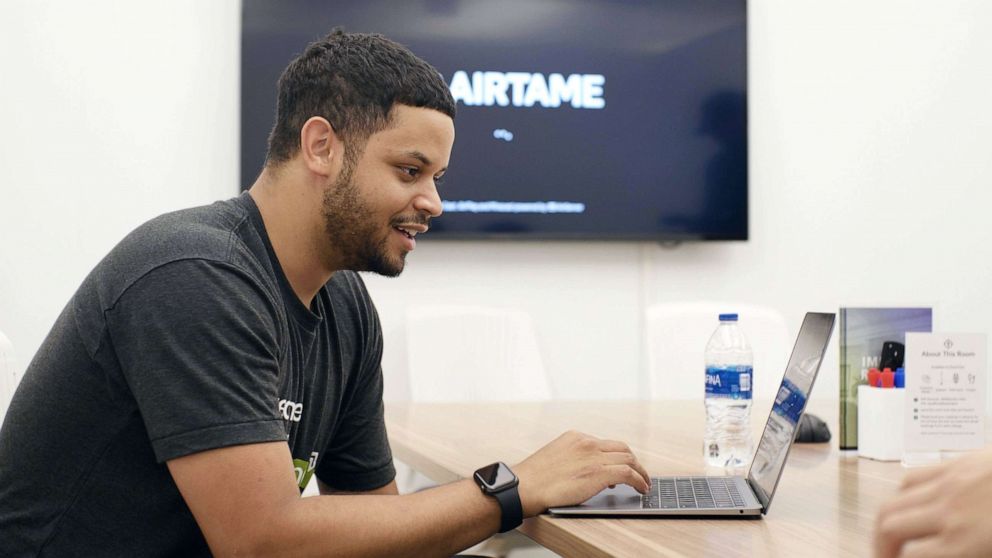
"The racial wealth gap has not gotten any better," he said. "And there's really no industry where someone can start a company, and have a multi-billion dollar business in just a couple years outside of tech."
The history and spirit of "Black entrepreneurship is incredibly strong" in Tulsa specifically, according to Malone, which is why it has been so important for him and his team to show "what can be accomplished" for the next generation.
'It's a full community effort': Edna Martinson, co-founder, Boddle
Martinson, the co-founder of game-ified education platform Boddle, said she hopes to use her company to "address the issues of learning gaps in elementary classrooms" and get more children "inspired to love learning."
"I've seen personally, what a good education can do to help propel you in life," Martinson said. "And I want to help kids also be inspired to learn and get that good quality education."
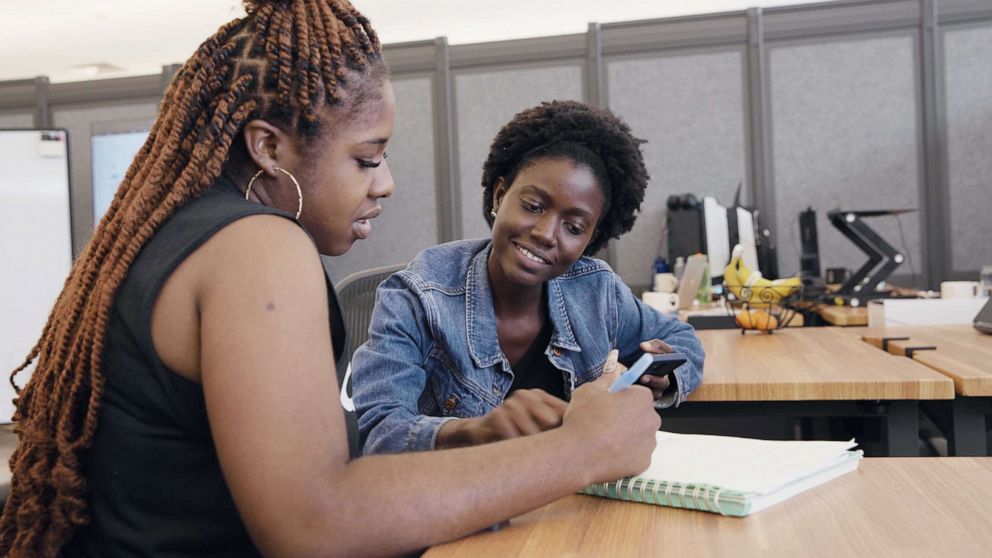
Martinson moved to Tulsa in August 2020, saying she was inspired by the people she met during visits and "not only the history, but what is being done to rebuild in Tulsa, especially around resources for Black entrepreneurs."
"I love how it's a full community effort, from all these different organizations and entrepreneurial support systems," she added. "Being a part of that is pretty special -- when you're in a place where there is alignment and mission, and everybody's on the same page and realizes how a thriving Black community can help Tulsa as a whole community thrive as well."
'You cannot do it alone': Chantelle Lott, CEO, Bounceless
Lott, who has been based in Tulsa for some 20 years now, creates patented activewear and sport bras for fuller-busted women -- a subset of consumers often overlooked by the athletic wear industry.
"Right now, there's not a lot on the market for us," Lott told ABC News. "So our mission is really just to make sure that women have the support that they need, and to know that bust size is not a barrier to their physical fitness."
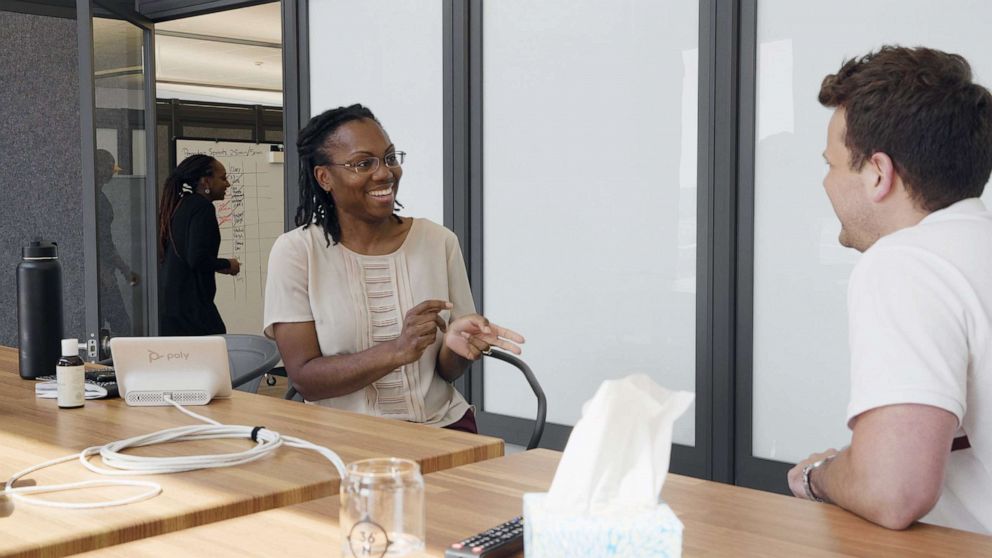
"Rebuilding Tulsa, rebuilding Greenwood, that was a passion of mine since I got here," Lott said of building her company in Tulsa. "It's a great experience to really contribute to the history and those who came before us, and to also pass it on to future generations."
As one of the few Black woman business leaders in the tech sector, Lott says she sees representation as crucially important.
"Because if you can't see it, you don't believe it, you don't see yourself in it," she said of representation in tech. "So I do believe that is important for Black founders or individuals, even youth, to make sure that they can see themselves in the places that they normally don't."
'We still have that spirit, and it still lives on': Jayvin Washington, founder and CEO, BiteWay
Washington, founder of the nutrition science-driven meal prep firm BiteWay, told ABC News that she grew up in Tulsa and considers it home -- which is why she says it is so important for her to stay and build her business there.
"It's important to have my business in Tulsa because of, of course, the history and the spirit of entrepreneurship that lies here," Washington said.
"Black Wall Street was a phenomenal, like extraordinary time and place that we had here in Tulsa. And it was destroyed, but it wasn't taken from us," she said. "We still have that spirit, and it still lives on. We're able to use that energy, and to rebuild and reconstruct what was always here in the first place."
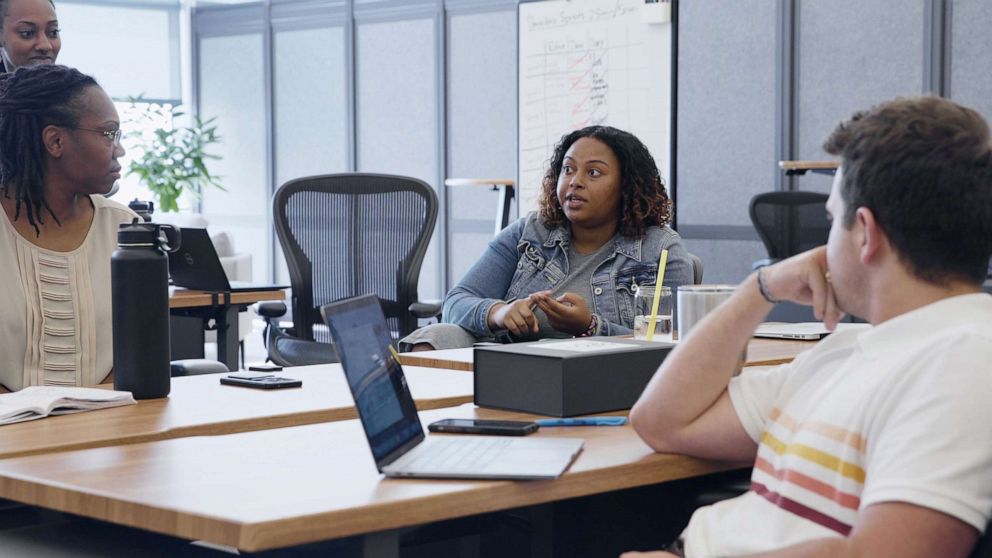
While she was initially interested in pursuing a career in the pharmaceutical industry, Washington said she felt called to the food industry as an easier way to help people in her community lead healthy lifestyles through nutrient-packed meals.
Lastly, Washington said she hopes that she can open doors for the next generation just by showing them that someone who looks like them can be a leader in corporate America.
"For me, it's very important to be that role model or be the representation for little Black girls and Black boys that aspire to be an entrepreneur or just, even if they want to work in the corporate world," she told ABC News. "They are able to do it, they have it in their bloodline."
'Access is incredible here': Kene Onuorah, co-founder and CEO, Comme Homme
Onuorah hails from Raleigh, North Carolina, and his parents are from Nigeria. He founded Comme Homme as a tech-oriented service for men experiencing hair loss something he said he has dealt with at a relatively young age.
"We're building Comme Homme for the two-thirds of all American men that deal with hair loss, about 50 million men to help them embrace their natural evolution," he said.
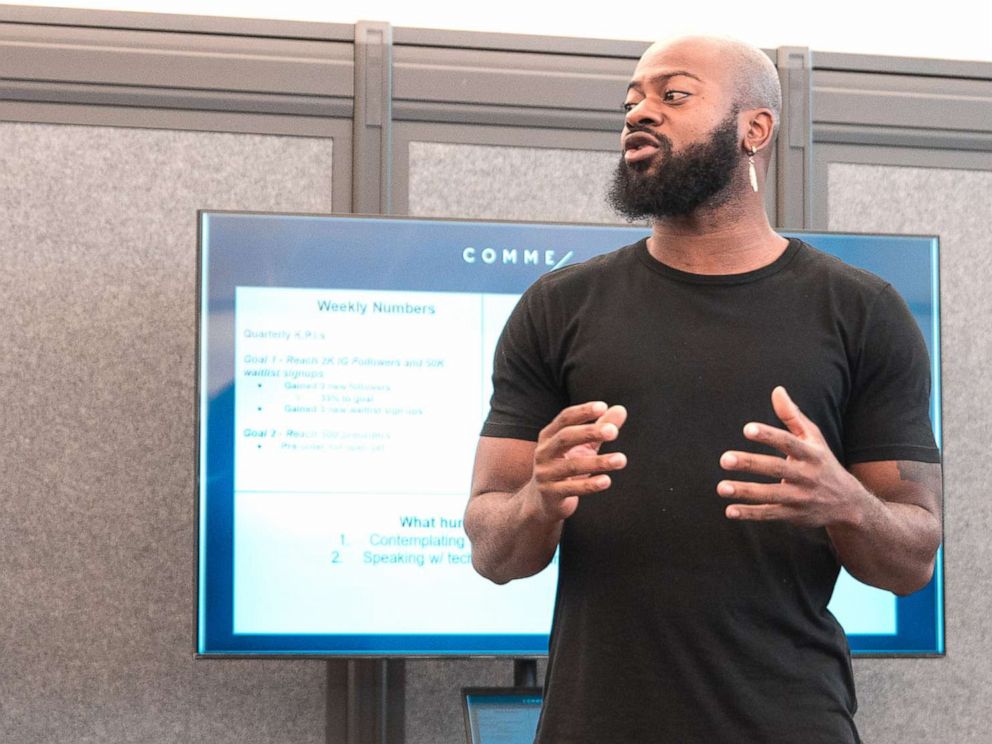
In addition to creating an online community for men experiencing hair loss, "We use augmented reality technology to actually help men who were dealing with hair loss, visualize themselves in an authentic manner with a shaved head," Onuorah said.
Being in Tulsa, "really helped us to continue to be revitalized and reinvigorated," based on the city's past, he said.
He said the city also provides resources he needs for his startup.
"It's really easy to get access to network, it's really easy to get access to capital, and really easy to talk to the people that can really push your business forward. There's something special about Tulsa, the access is just incredible here," he said.
'Great to be in the midst' of Tulsa's 'revival': Chris Davis, founder and CEO, Fansub
After receiving a full scholarship to Duke University where he played football for four years, Davis said he pursued a professional football career before co-founding FanSub -- a platform that allows creators and entertainers to engage with fans through livestream activations, marketing campaigns and other high-tech ways.
The Atlanta native said that his interest in the tech startup scene there led to his collaboration with former Miami Dolphins player Brandon King on FanSub.
He said that he, King and FanSub's two other co-founders, Cameron Williams and Michael Lombardi were looking for a "network to help us grow the business," and they found out about the Tulsa startup accelerator program.
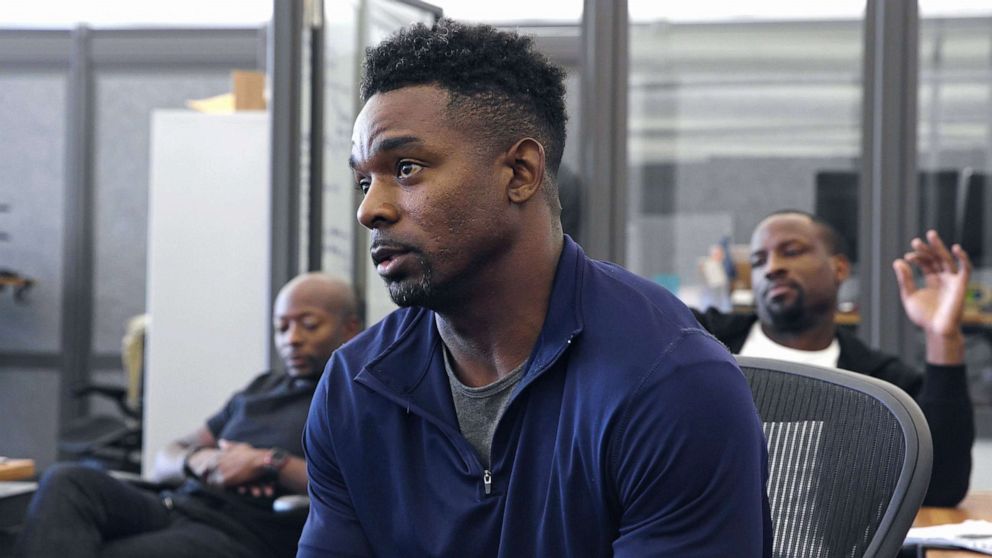
"The caveat was that we would have to move to Tulsa," to participate in the program, Davis said. Once they arrived, he said they began to learn more about the city's history. It's "really great to be right in the midst of history in a revival of this city," Davis said. "There's more to this opportunity than the accelerator program, it's also a way for us to be a part of … this rejuvenation of Tulsa, Black Wall Street in Greenwood," he added.
'Get back what was taken': Carlanda McKinney, founder and CEO, Bodify
McKinney comes from an "entrepreneurial family," she said. So when she became frustrated after constantly receiving incorrectly sized clothes purchased online, then having to go through the hassle of sending them back, she went into "problem solver" mode, she said, and launched Bodify, a tech platform for finding the right clothes online for one's body type and size.
And she said Tulsa is the perfect place to build her business.
"What brought me to Tulsa, really, it grew from a visit," said McKinney and that her grandparents would bring her and her sisters to Tulsa every summer from her home in Kansas City. "I really could see myself there," she said.
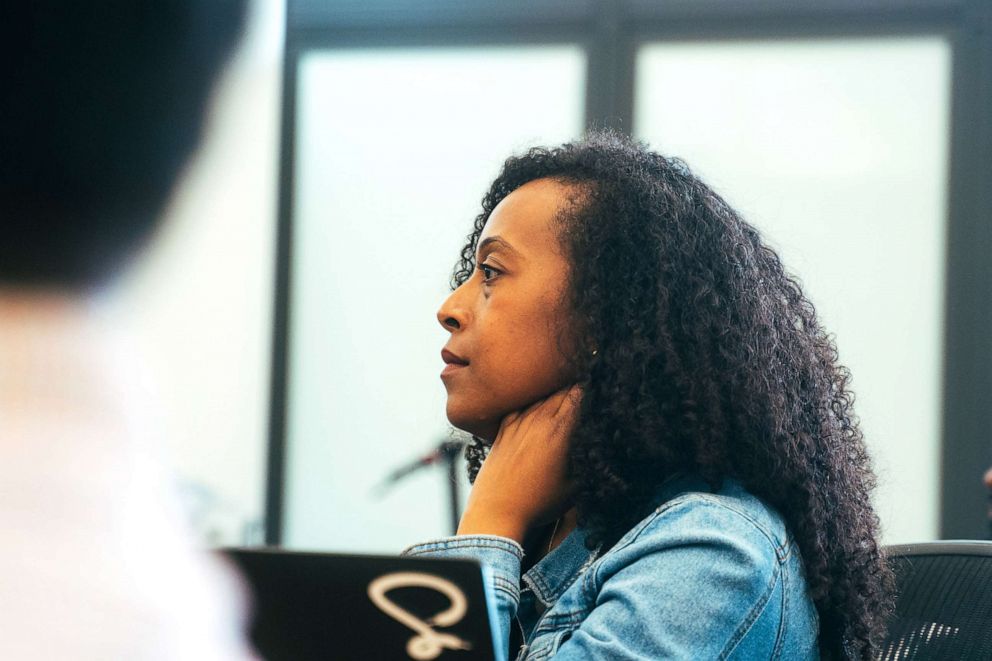
The MBA graduate said she kept hearing about the business opportunities opening up in Tulsa through networking in her hometown.
"I heard more than a few times, you should really check out what's going on in Tulsa, that ecosystem is building up," she said.
She said she applied for the Tulsa accelerator program for startups and was accepted. "And that sort of sealed the deal," she said about setting up shop in Tulsa.
"More importantly though, I think what's happening here, particularly around Black and brown founders is incredibly impactful because of everything that happened with Greenwood," she said.
"I'm super excited to be a part of, even if it's some small way, of sort of helping people get back what was taken," McKinney said.
'Didn't see any other place that I would go': Ambrose Midget, founder, Fresh Fabrics
Born and raised in Tulsa, Midget's startup Fresh Fabrics is a mobile, same-day laundry service, with technology at its center.
With her business, Midget says she aims to "take laundry to the next level" and discussed her excitement at growing her business in her hometown.
"I just didn't see any other place that I would go … to start my company," she said.
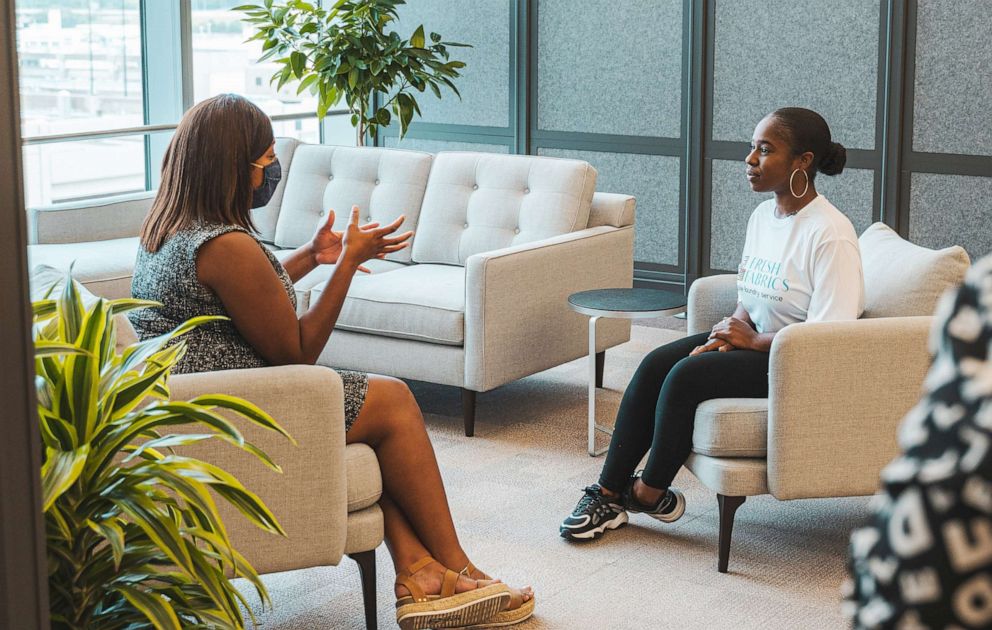
Midget spoke about what launching a startup in Tulsa meant to her as a Black woman.
"Black women, we actually lead the entrepreneur world, as far as startups ... but we're the least funded and the least that tend to get support and resources," she said.
The startup program in Tulsa, Midget said, is "a great opportunity" to work with a program "that believes in Black and brown people … and especially me as a Black woman," she said.
We 'feel all the love': Marc LaManque, Troy Smith, Andres Gonzalez, co-founders, Cadenzo
LaManque, Smith and Gonzalez say they met at the University of Oklahoma and began working on their business while they were students there. For them, there was no question that Tulsa was an ideal place to launch their startup, Cadenzo, which is a digital booking platform for entertainers and venues.
"Being in a place where they're providing guidance, mentorship, resources, advisers … everything that we need for three young first-time founders to start their company," LaManque said about the Tulsa program for startups. "We just feel all the love," he said.
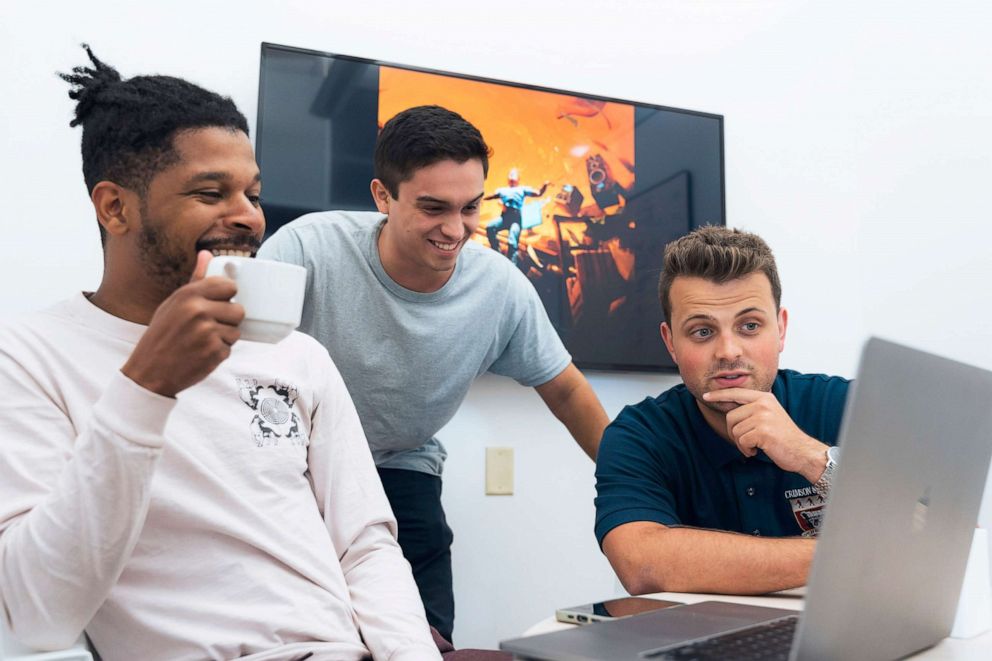
Smith said these resources have helped them build Cadenzo into a "platform that enables communities to truly revel in wherever space that they occupy and enable their culture and enable their enjoyment of music and entertainment."
And that fact that they are building their startup outside of traditional tech hub hotspots has been an advantage, Gonzalez said.
"If you think about traditional tech hubs -- New York, Bay Area -- you walk outside and you bump in a startup every five steps. It's a lot easier here, and especially with the whole community, being very supportive," he said.




